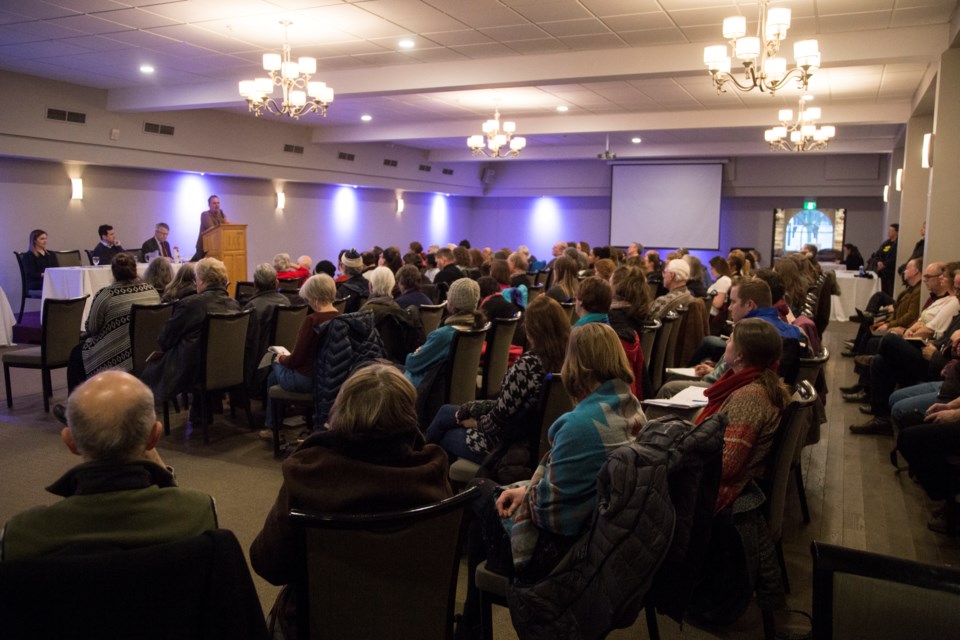Most of the 50 per cent of food waste that occurs in this country happens at the dinner table, says Guelph’s MP, while at the same time, many Canadians live with food insecurity.
The Canadian government is in the process of developing a comprehensive food policy, and a panel discussion held Monday at the Italian Canadian Club was the second of two events hosted by MP Lloyd Longfield on the issue.
Over 100 people filled a room at the club to hear panellist discuss the issue of food insecurity.
The panel included Brady Deaton, professor and McCain Family Chair in Food Security in the Department of Food, Agricultural and Resource Economics at the University of Guelph, Gavin Dandy, directing coordinator of the Seed community food project and Randalin Ellery, coordinator of the Guelph and Wellington Task Force for Poverty Elimination.
Many of the agencies and organizations working to address hunger in Guelph are currently doing so without federal government support.
“We had a diversity of community groups here that are ready to go, in fact they are already working without government support, so where could the government help them to do the work they are doing?” said Longfield.
Longfield notes 70 per cent of people living in poverty are employed — sometimes referred to as the working poor.
“People are spending more money on housing and can’t afford food, or they have to choose between pharmacy drugs versus food versus housing,” said Longfield.
During his remarks, Deaton said about 12 per cent of Canadian households in 2014 were characterized as experiencing food insecurity.
Food insecurity has three pillars, said Ellery — food availability, economic access and food literacy.
People on social assistance need to spend about 30 per cent of their money on food to be healthy, said Ellery, but an average of 90 per cent of their money goes toward housing.
"It doesn't add up," said Ellery.
The idea behind the panel discussion was to bring public feedback back to Ottawa in drafting up the policy.
Speaking to GuelphToday after the event, Longfield said public consultation with constituents holds a lot of water when drafting policy.
“When I can say I heard this talking to my community, all of a sudden you have a lot of weight behind something,” said Longfield.
Longfield said he plans to hold a town hall meeting in the near future about the proposed legalization of marijuana.
